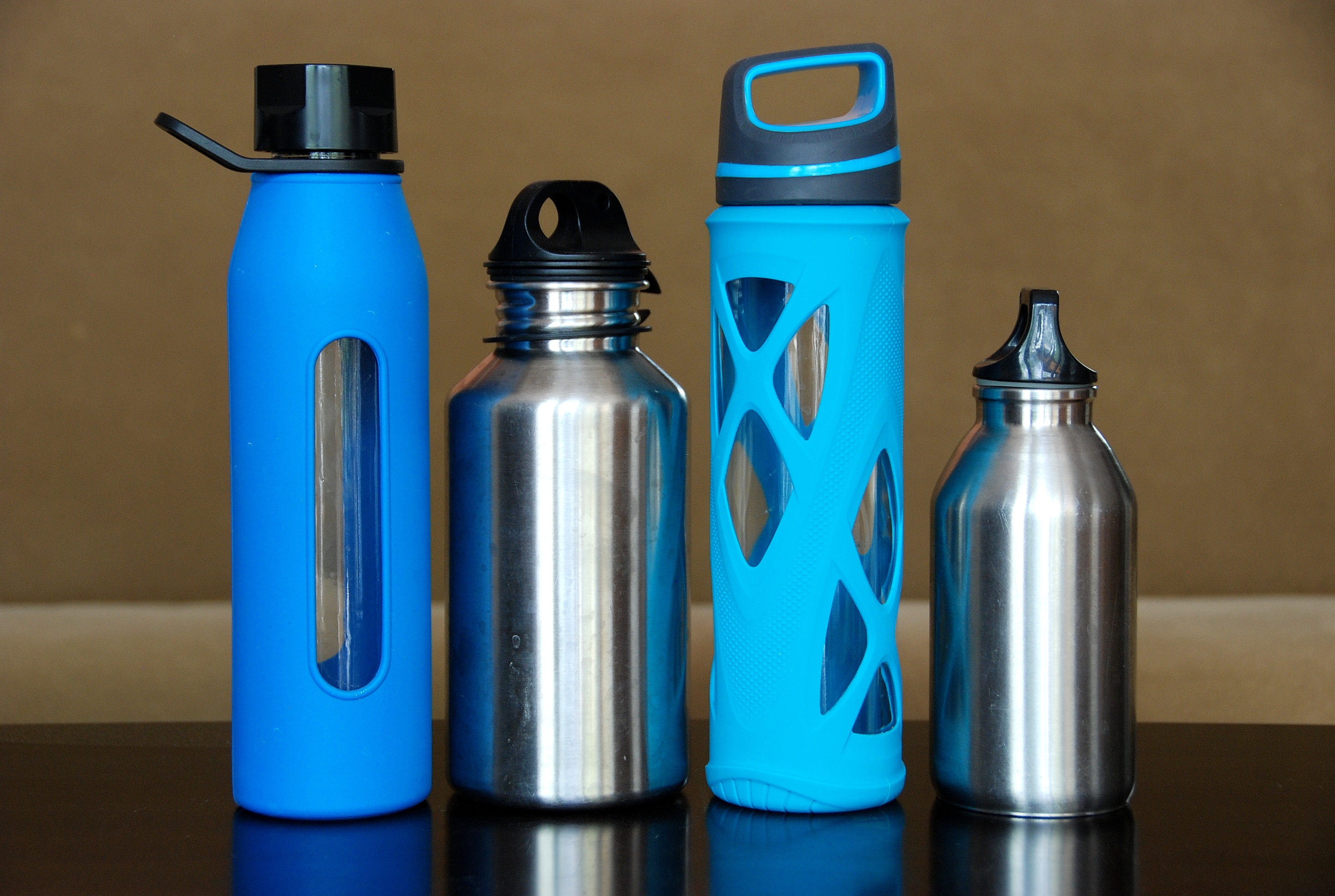Having a dry mouth is a symptom that many COPD patients experience, although it is often overlooked. Compared to more visible or more serious ailments, like coughing and shortness of breath, many patients consider their dry mouth symptoms to be low priority or never bring them up with their doctor at all.
{{cta('b59df0c1-c4de-47a8-8e1c-0d33d4b414aa','justifycenter')}}
However, a dry mouth is an extremely uncomfortable symptom, and it is likely to only get worse if you leave it untreated. If ignored for too long, it can even lead to more serious problems like gingivitis, oral thrush, and tooth decay.
That's why in this post we're going to show you what to do if you experience a dry mouth because of your COPD. We'll introduce you to a variety of products and techniques that can treat dry mouth symptoms and show you how to prevent them from returning in the future.
If you or someone you know is suffering from a dry mouth, then this guide will give you the tools you need to track down both the cause and the solution. A dry mouth can happen for a variety of different reasons, and by better understanding the causes and potential treatment options you'll be much more likely to find a solution that works effectively for you.
Dry Mouth Symptoms
The clinical term for a dry mouth is xerostomia, and it happens when your mouth can't produce enough saliva to keep itself moist. It can happen for a variety of reasons, including stress, breathing through your mouth, and taking certain medications.
COPD patients are particularly likely to get a dry mouth as a result of COPD medications and symptoms. It's nothing to worry about if it only happens every once in a while, but you'll need to find a solution if it happens more often than that.
{{cta('fa8abc2a-1e88-4fa3-82fd-1cb5b9ed43b2','justifycenter')}}
Having a dry mouth can make a variety of things difficult, including eating, chewing, and swallowing. A dry mouth can also make it difficult to talk or make your voice sound scratchy and hoarse.
A dry mouth is often accompanied by a dry throat, nose, or sinuses. This can cause the lining of your nose and upper airways to become irritated and sore, and even lead to nosebleeds and infections.
Here are some of the common symptoms of dry mouth (xerostomia):
- Dry or sticky feeling in your mouth
- Thick, stringy saliva
- Dry tongue
- Dry or sore throat
- Hoarse voice
- Trouble chewing, swallowing or speaking
- Changes in your ability to taste food
- Problems with dentures
Risks and Complications of Not Treating Dry Mouth
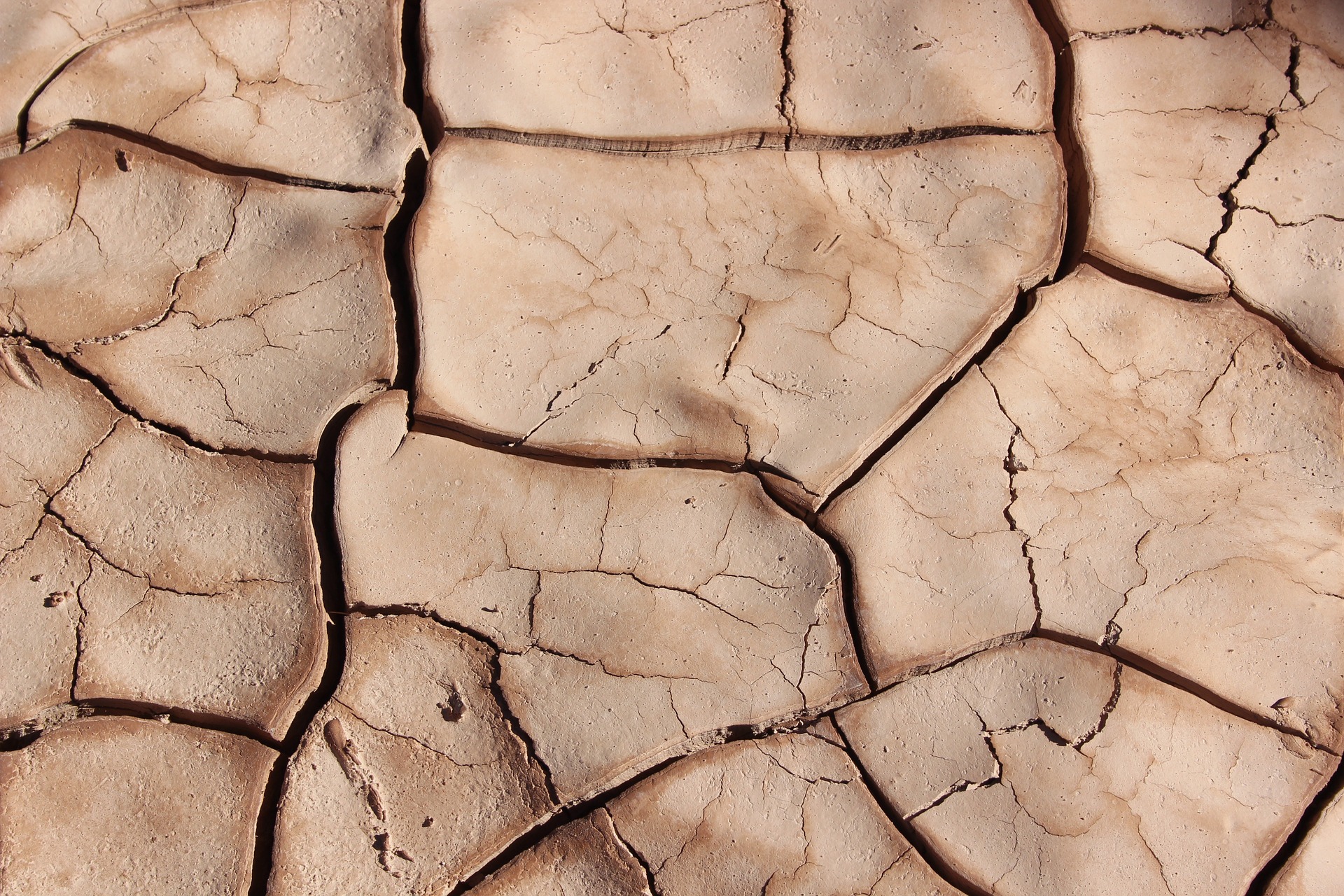
Having a dry mouth is more than just unpleasant; it can actually be bad for your health. If it happens frequently, it can cause a variety of other symptoms in your mouth, nose, and throat.
That's why it's important not to ignore dry mouth symptoms if they don't go away quickly on their own. Left untreated, a dry mouth can accelerate tooth decay and lead to other infections and problems.
Tooth Decay
To stay healthy, your mouth should produce enough saliva to stay moist all of the time. However, when you are sick, take certain medications, or suffer from a respiratory disorder like COPD, it can dry out your mouth so much that your saliva glands can't keep up.
This is bad for your oral health, because saliva plays an important role in keeping your teeth and gums clean. It washes bacteria and food particles off of your teeth and has anti-bacterial and anti-fungal properties.
Keeping your mouth moist prevents bacteria from taking hold and prevents tartar build-up on your teeth. If not managed effectively, having a frequent dry mouth leads to tooth decay and cavities.
Mouth Infections and Gum Disease

If left untreated for too long or not properly managed, a dry mouth can lead to bacterial and fungal infections in your gums and other surfaces in your mouth. This can cause your gums to become inflamed, leading to gingivitis and full-blown gum disease.
Symptoms of gingivitis include swollen, sensitive or bleeding gums, bad breath, and pain when you chew. If you experience any of these symptoms along with a dry mouth, you should go see your dentist right away.
A dry mouth can also allow fungus to flourish in your mouth, causing a yeast infection known as candidiasis or oral thrush. Thrush appears as white patches on your tongue, throat, and roof of your mouth.
A dry mouth can also cause sores by leaving you vulnerable to bacterial infections on the surface of your mouth. It can also cause your lips and the skin around your mouth to crack, which is painful and puts you even more at risk for infection.
What is Causing Your Dry Mouth?
Many COPD patients suffer from a dry mouth for a variety of different reasons. Many COPD symptoms can dry out your mouth and throat, as can many different medications used to treat COPD.
If you know what is causing your dry mouth, then it will be easier to find an effective solution that can treat it. To help you understand the cause of your dry mouth, let's take a look at some of the different ways that living with COPD can dry out your mouth and throat.
COPD Medications
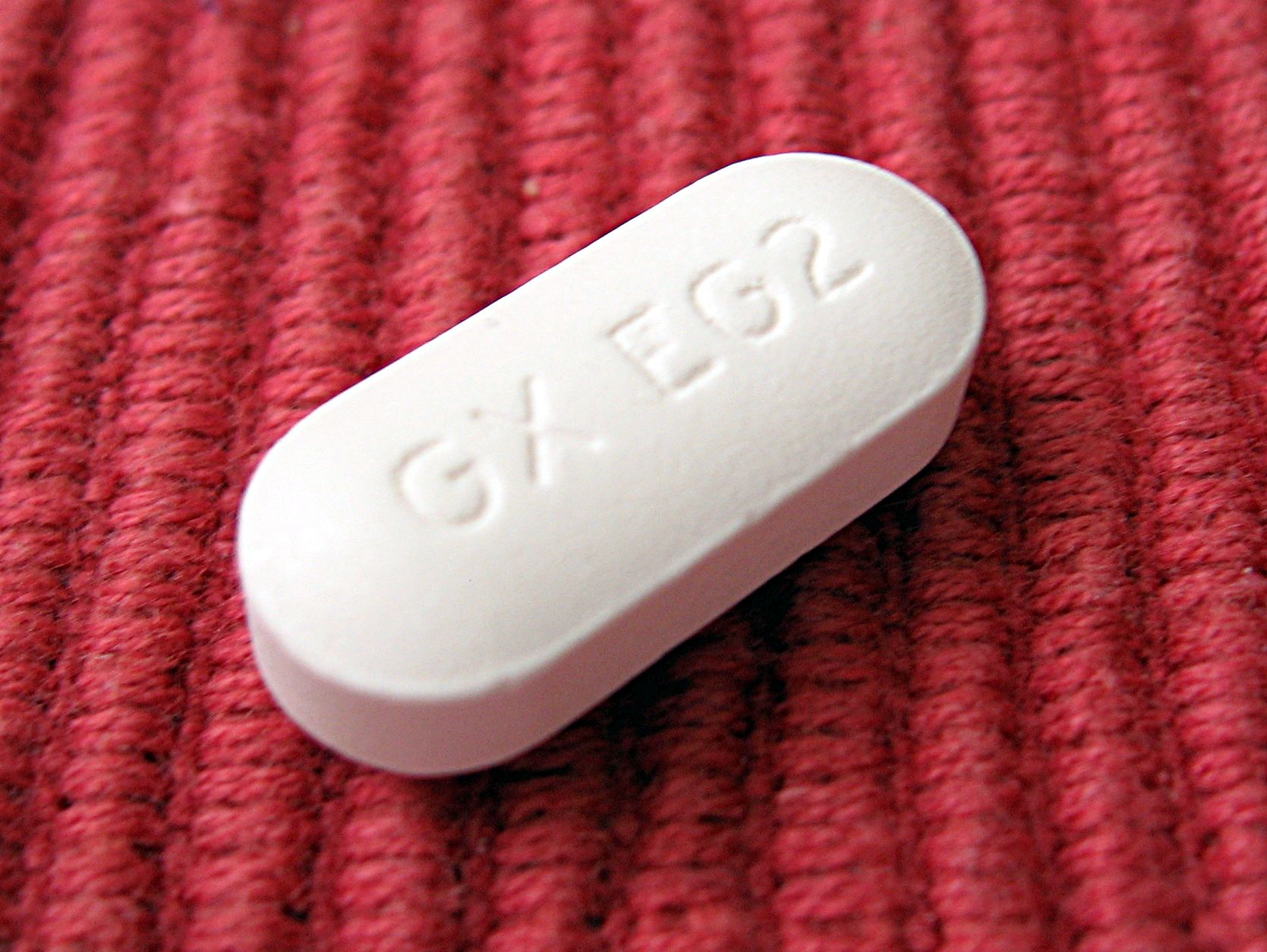
Many of the medications used to treat COPD can cause your mouth to get dry. It is a common side effect of inhalers, steroids, and several other drugs used to manage COPD symptoms.
Short-acting bronchodilators are one of the worst culprits and one of the biggest medicinal causes of dry mouth in people with COPD. Most people with COPD have to take bronchodilator medications via an inhaler at least once a day to keep their airways open and their symptoms under control, which can leave them with uncomfortable dry mouth symptoms every day.
Many COPD patients also use steroid inhalers to treat inflammation and prevent exacerbations. Steroid medications are known to dry out your mouth, especially when you take them with an inhaler.
Along with a dry mouth, steroid inhalers, bronchodilator inhalers, and especially combination inhalers (steroid plus bronchodilator) can cause throat irritation, hoarseness, and complications like yeast infections and cavities. If you have COPD, it's important to know how to manage these and other dry mouth symptoms to avoid permanent damage to your oral health.
Another medication many COPD patients take frequently is antibiotics, which are used to treat COPD exacerbations and treat infections in the lungs and upper airways. Many antibiotics can also cause dry mouth symptoms, including Azithromycin, a common antibiotic used to treat COPD.
Luckily, most courses of antibiotics are short, so even if you experience a dry mouth, you shouldn't have to manage it for more than a week or two. However, you should talk to your doctor anytime you experience side effects from your medications, including dry mouth. Your doctor may even be able to give you a slightly different medication to see if your symptoms improve.
Other Medications
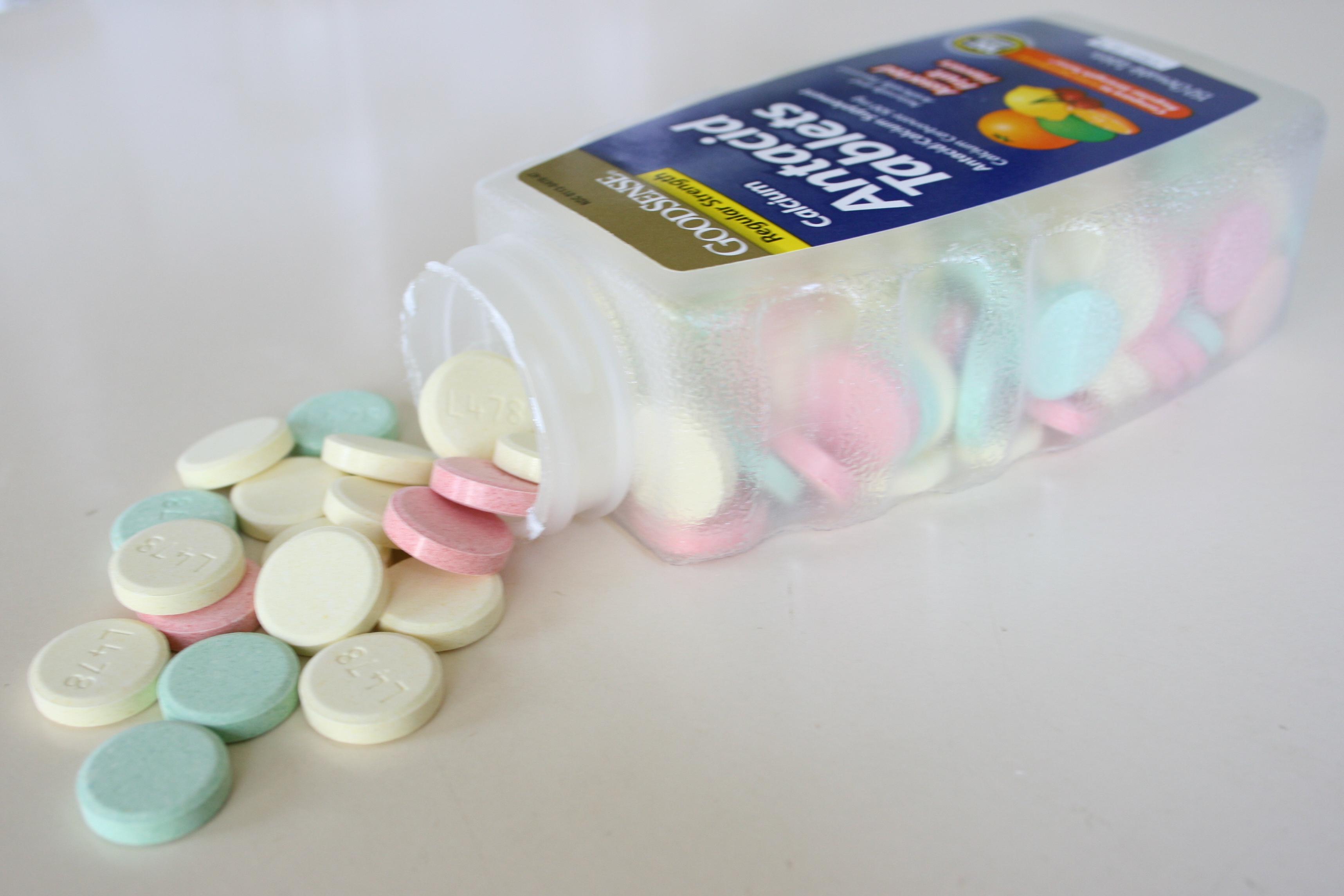
Many other medications can also cause a dry mouth, including antidepressants, antacids, quit-smoking medications, and anti-inflammatory drugs. While these drugs are not necessarily COPD medications, they are frequently used by people with COPD to treat other conditions and complications related to or worsened by their disease.
Oxygen
Supplemental oxygen is also a medication, but it deserves a category of its own for its role in causing dry mouth. The majority of oxygen patients suffer from mouth and throat dryness occasionally, and, for some patients, it's a constant struggle to keep their mouth from getting dry.
Often, mouth dryness comes from having a continuous flow of oxygen forced through your mouth and throat, which can dry up the saliva in your mouth after a while. Pulse-flow oxygen is less harsh and less likely to dry you out, but many patients are unable to use pulse-flow technology to meet their oxygen needs.
You are more likely to experience a dry mouth while using oxygen at night, especially if you sleep in a dry room or breathe through your mouth when you sleep. Your mouth and throat are especially likely to get dry if air has an opportunity to leak out of your mouth or nose. This can happen if your oxygen mask doesn't form a tight enough seal or if your mask uses a pillow cushion under the nose.
Using a CPAP or BiPAP machine to treat sleep apnea can have the same drying effect as using supplemental oxygen. Since many people with COPD also have sleep apnea, this is a common cause of dry mouth in COPD patients.
COPD Symptoms That Cause Dry Mouth
COPD wreaks havoc on your respiratory system, causing a variety of uncomfortable symptoms, including a dry mouth. Whenever you have a bout of coughing, wheezing, or shortness of breath it can leave your mouth and throat feeling scratchy and dry.
Your mouth and throat are integral parts of your respiratory system and get directly affected by the conditions in your airways. And as an entry point through which air enters your body, it is one of the parts most affected when you breathe in dry, irritating air.
Whenever you experience a flare-up or exacerbation, it can make a dry mouth even worse, and put you at a higher risk of illness and infection. That's why you should avoid allergens, germs, and respiratory irritants like perfumes and air pollution that could make your symptoms worse.
Here are some of the symptoms and conditions that can cause a dry mouth with COPD:
- Coughing
- Wheezing
- Mouth breathing
- Flare-ups and exacerbations
- Exposure to dry air
- Exposure to smoke, pollution, and irritating particles
- Exposure to allergens, mold, and dust mites
Solutions to Treat a Dry Mouth
Make Adjustments to Your Oxygen Delivery System
The best way to treat a dry mouth is to treat the underlying problem. For many people with COPD (but not all), the main underlying cause of mouth dryness is supplemental oxygen therapy.
Luckily, there are a variety of things you can do to minimize dryness from oxygen therapy and make it more comfortable for your mouth, nose, and throat. These include things like using the right kind of oxygen mask or nasal cannula and getting a humidifier for your oxygen device.
Get a Humidifier Bottle for Your Oxygen Delivery System or CPAP/BiPAP Machine

If you use supplemental oxygen, then you know that the flow of air from your oxygen delivery device can severely dry out your mouth and throat. Higher oxygen flow rates tend to cause worse dryness and may even irritate your lungs and airways.
That's why many oxygen patients get a humidifier bottle to attach to their oxygen delivery system. All you have to do is fill it with distilled water and connect it to the tubing to bubble the air from your oxygen source through. This moisturizes the air to make it less dry by the time it reaches your mouth or nose.
If you experience a dry mouth, nose, or throat more than occasionally while using oxygen, talk to your doctor about getting a humidifier to attach to your oxygen delivery device. However, whether or not you can use a humidifier may depend on your personal oxygen requirements, and it won't work with pulse flow oxygen.
You can also get a humidifier for your CPAP or BiPAP machine if you use one to treat sleep apnea. Talk to your doctor about getting a humidifier for your machine if you often find yourself waking up with a dry mouth or throat during the night.
Using a humidifier bottle can make a huge difference in your comfort and dry mouth when you use oxygen. To learn more about how to make supplemental oxygen more comfortable, visit our previous post here.
Don't Let Your Oxygen Mask Leak
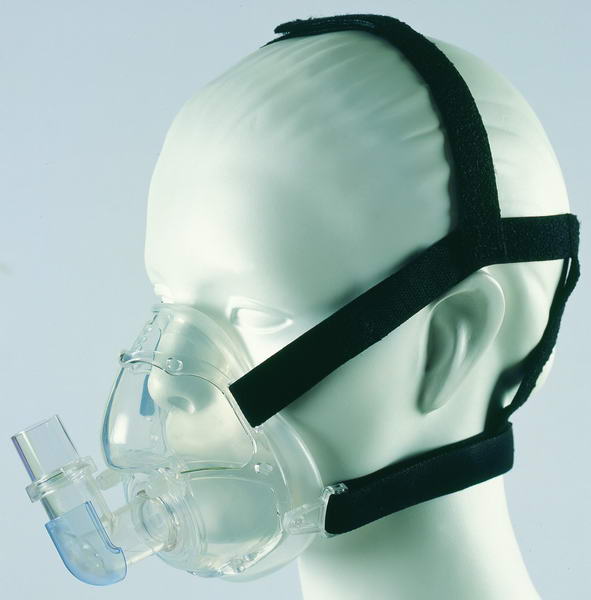
If you have a humidifier for your oxygen but still experience a dry mouth or throat, then it could be because your oxygen mask is leaking. If there is a gap between the edges of the mask and your skin, it allows the humid air from your oxygen supply to escape while letting dry, outside air in.
This can cause severe dryness and is most likely to happen if you use a nasal pillow mask or a mask that doesn't fit correctly. In that case, you may need to replace your mask with one that fits your face better and doesn't allow air to leak out.
Get a More Comfortable Oxygen Mask or Nasal Cannula
Sometimes you can reduce mouth, throat, and nasal dryness from oxygen therapy just by using the right kind of nasal cannula or mask. For example, you can get high-flow nasal cannulae that help by simply reducing the speed at which the air rushes into your nose.
Nasal cannulae and masks come in a wide variety of designs and materials you can choose from. You might have to try out a few different types before you find the one that's most comfortable and convenient for you.
Using the right mask can make all the difference in how comfortable oxygen therapy is and how dry your mouth, nose, and throat feel. To learn more about all the different options for oxygen masks and nasal cannulae, visit our previous post here.
Rinse Out Your Mouth

When your mouth is dry, simply rinsing it out with water once every hour or two can help you keep it moist. You can rinse your mouth out with plain tap water or use a solution of water with added salt or baking soda, if you like.
You can also use oral rinses like Biotene mouth wash whenever your mouth feels dry. These rinses add extra moisture and protect your teeth from harmful bacteria and fungi.
Some oral rinses can even soothe your mouth if it's irritated or strengthen your teeth to fortify them against bacteria and decay. However, it's important to find a mouthwash or oral rinse that is alcohol-free, because alcohol can irritate your mouth and dry it out even more.
Here is a list of some alcohol-free mouth rinses you can use to treat a dry mouth:
- Biotene Mouthwash (made by GSK)
- Oasis Moisturizing Mouthwash (made by GlaxoSmithKline)
- Eco-DenT Ultimate Natural Daily Rinse (made by Eco-DenT)
- Crest Pro-Health Rinse (made by Procter and Gamble)
Use Saliva Substitutes and Oral Gels
There are a variety of saliva substitutes and oral gels on the market that you can use to moisturize your mouth when it gets dry. While they only provide temporary relief from dryness, they tend to be more effective than simply rinsing your mouth with water or mouthwash.
Saliva substitutes mimic the salinity and acidity of natural saliva and come in sprays and liquid solutions. You can buy them over the counter at most drug stores, although you may need to ask a pharmacist for help hunting them down.
You can use your saliva substitute as often as you like throughout the day as long as you have permission from your doctor. However, you are not supposed to eat or drink for fifteen minutes after use.
Oral gels use a special gel solution to lubricate the inside of your mouth and are also available over the counter. Oral gels are great for sealing in moisture and can last for up to four hours after application.
Here is a list of oral gels and saliva substitutes you can use to treat dry mouth:
- Biotene Oral Balance Moisturizing Gel and Dry Mouth Liquid (made by GSK)
- Mouth Kote (Parnell Pharmaceuticals)
- Oasis Moisturizing Mouth Spray (made by GlaxoSmithKline)
- Saliva Substitute (made by Roxane Laboratories)
- Sprey Rain Oral Mist Spray (made by Xlear)
Get Prescription Medication
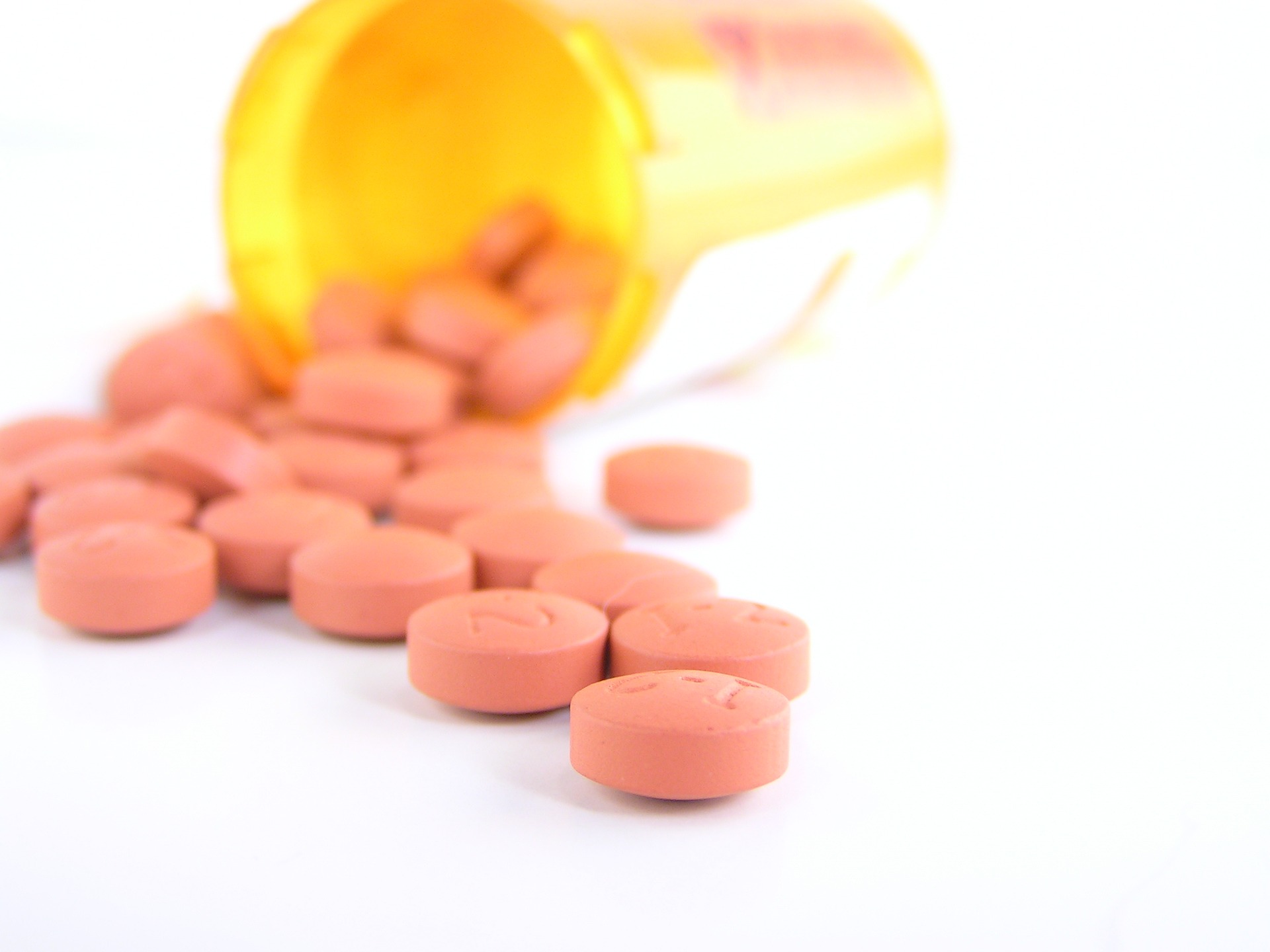
There are a couple of prescription-only medications that can stimulate extra saliva production and relieve dry mouth symptoms. However, these medications, called secretogogues, are usually only available for patients with chronic, severe dry mouth caused by head and neck radiation therapy.
However, if you experience a frequent dry mouth from oxygen therapy or other medications, you should still talk to your doctor to see if you have any prescription medication options. If your dry mouth is severe and poses a threat to your oral health, your doctor may consider prescribing you a saliva secretogogue medication.
If your dry mouth is causing a bacterial or fungal infection, your doctor or dentist may also prescribe you an antibacterial or antifungal medication. These types of infections are more common when you don't have enough saliva to neutralize bacteria and fungi in your mouth.
Rinse Your Mouth After Using Your Inhaler
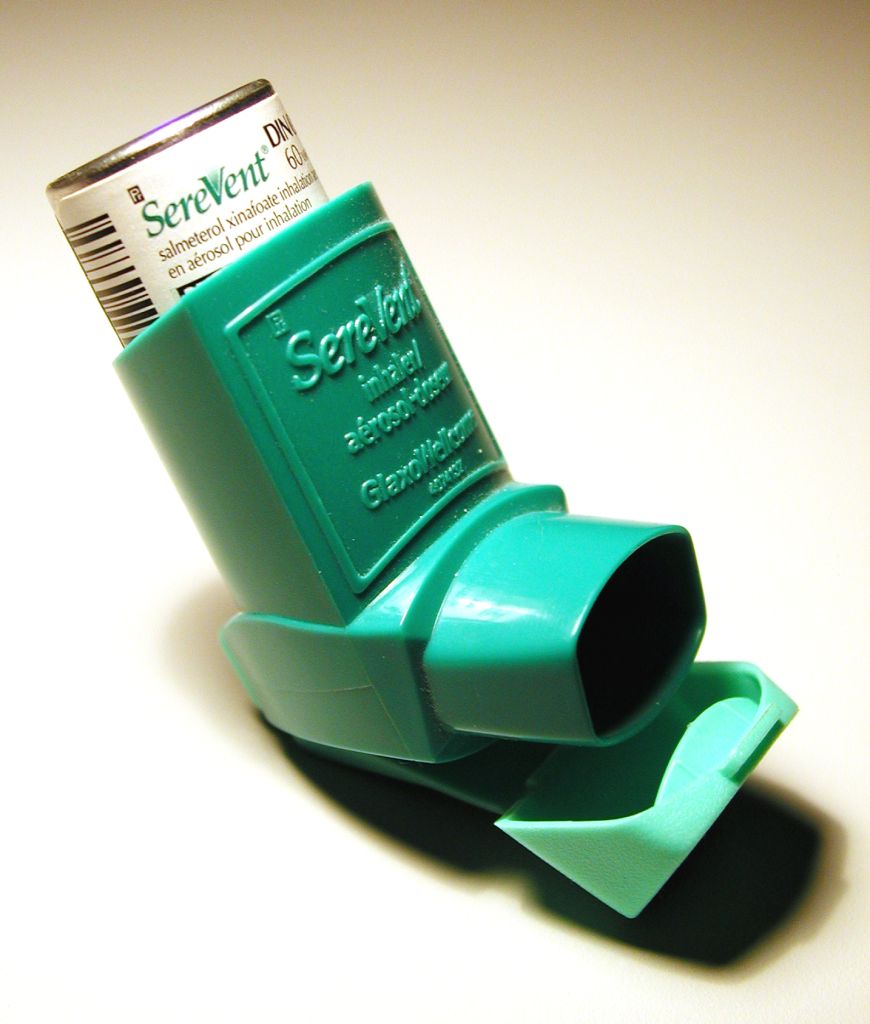
Whenever you use an inhaler, you should always rinse out your mouth immediately afterward. Most inhalers include this as part of their instructions, but many patients ignore this step or get lazy over time.
Some studies show that only about half of the medication you inhale ends up actually making it to your lungs and airways; the rest ends up coating your mouth. That's why rinsing your mouth out after using your inhaler is so important, especially if you use it every day.
Swishing water around your mouth removes the residue of the medication, which is what causes dry mouth when you use your inhaler. Washing it off helps your mouth stay moist and prevents cavities, oral thrush, and bacterial infections like gingivitis.
However, you have to remember to rinse your mouth out immediately after you use your inhaler in order for it to be effective. Studies show that putting it off for even one minute gives the medication enough time to absorb into your mouth, causing dryness and other complications.
Use Moisturizers and Creams
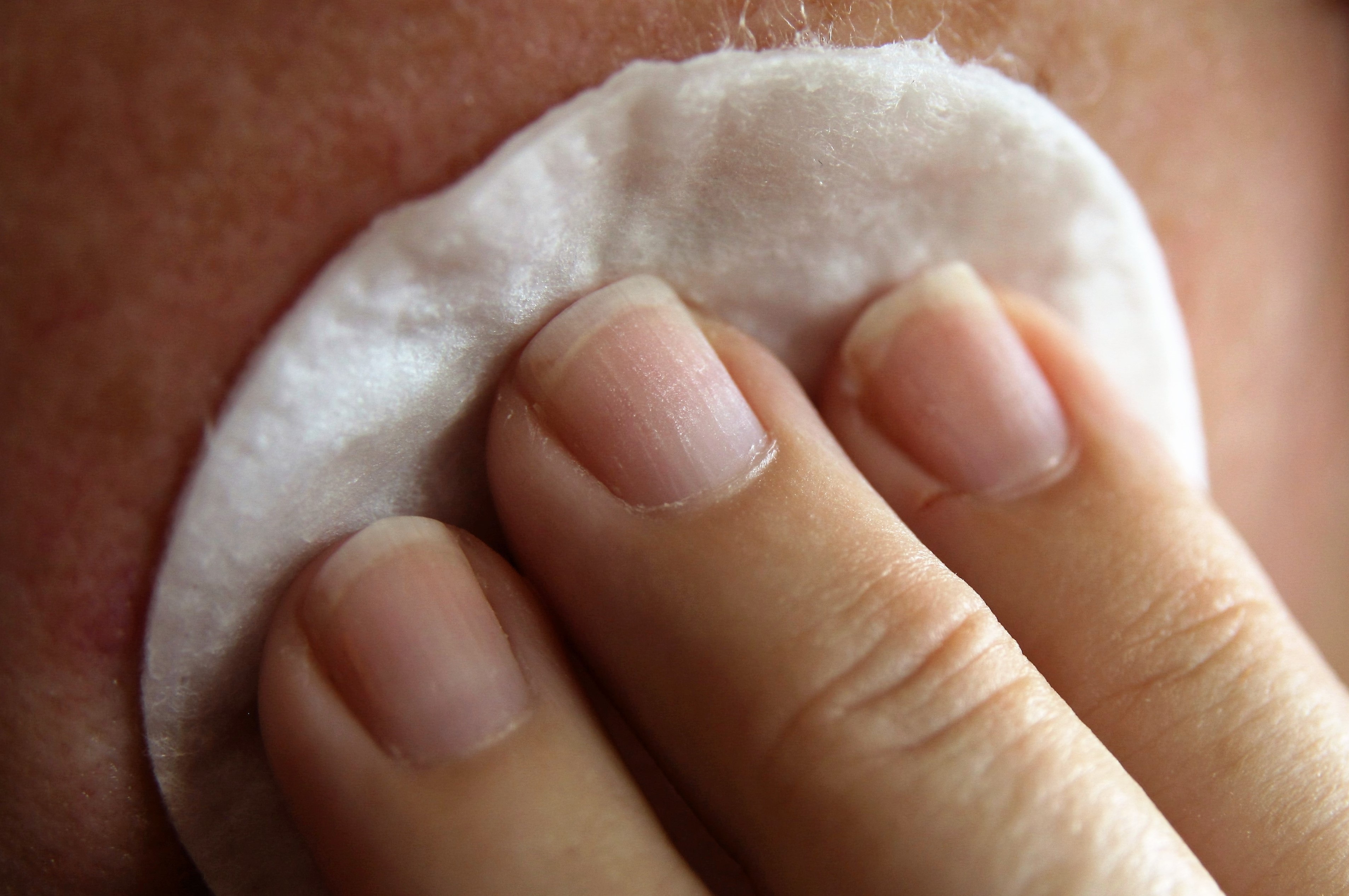
While these aren't for your mouth exactly, moisturizers and creams are a godsend for chapped lips and skin. After all, if your mouth is dry and dehydrated, there's a pretty good chance that your skin and lips are on the dry side, too.
Oxygen therapy, in particular, can cause your lips and the skin around your mouth to get dry, irritated, and cracked. Luckily, all it takes is regular moisturizer application to keep your skin smooth and moist.
Since oxygen is highly flammable, oxygen patients should always avoid using chapsticks and moisturizers that contain petroleum, which is also a very flammable substance. Instead, you should only use water-based lubricants and lip balms when you use supplemental oxygen.
If you don't use oxygen, then you are free to use whatever kind of skin or lip moisturizer you prefer. However, moisturizing creams tend to be thicker and work better than lotions, and simple petroleum jellies like Vaseline work exceptionally well for chapped lips and skin.
You can also use water and petroleum-based lubricants to lubricate the outside of your nose and just inside your nostrils if they get dry. If you experience nasal dryness, a saline nasal spray or nasal gel can give you temporary relief.
If you use supplemental oxygen, Surgilube is a great water-based lubricant used by many oxygen patients and hospitals. It's an inexpensive, all-purpose lubricant that can come in handy for a variety of moisturizing needs.
Make Hydration a Priority
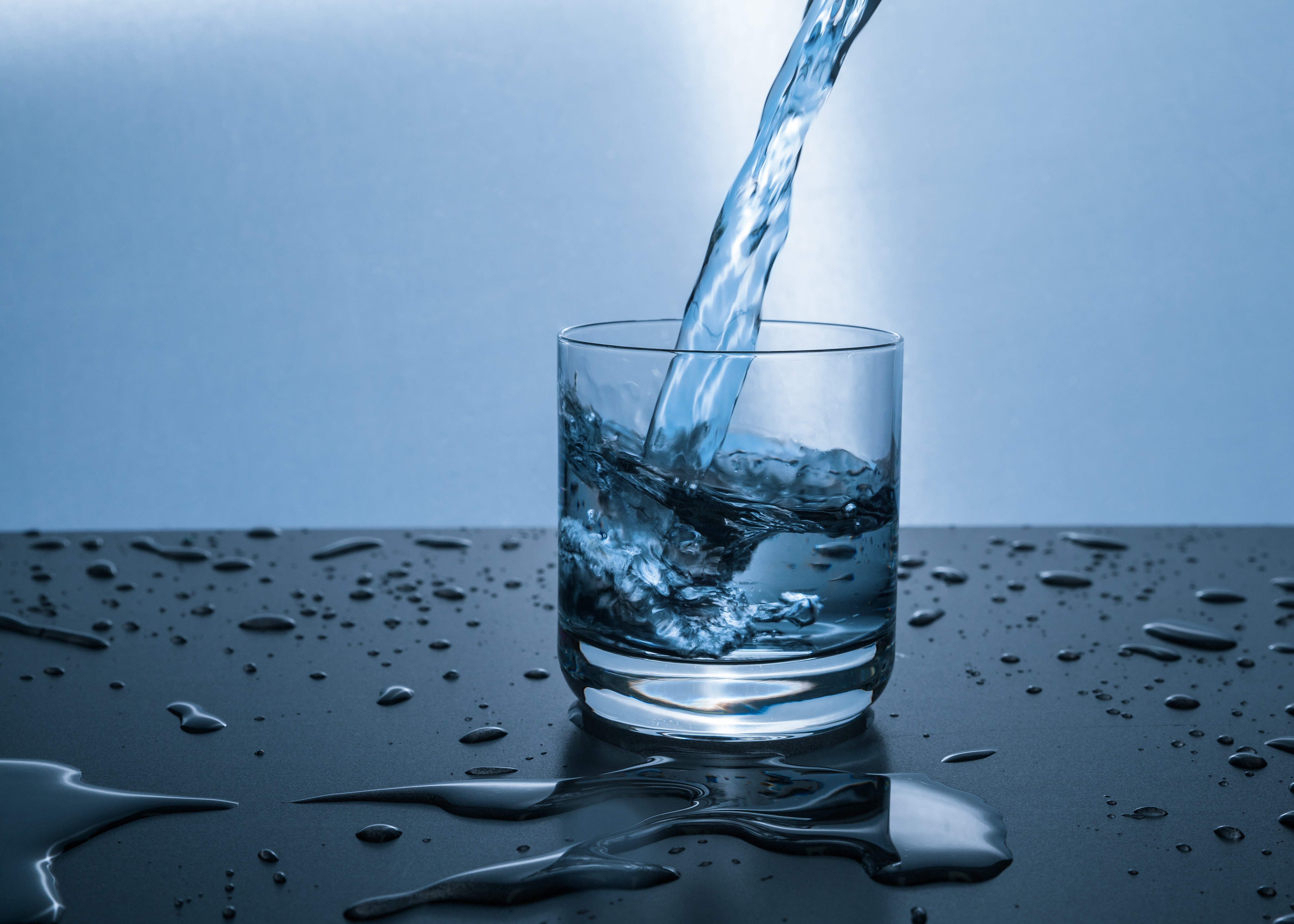
Dehydration is a common problem in people with COPD, and it can cause your mouth to dry out, too. Even if your dry mouth is caused by a medication or any other reason, getting dehydrated can make it much worse.
If you struggle with a dry mouth often, then you should be making drinking enough water a top priority in your daily routine. Not only will it help with your dry mouth, but it can reduce a variety of symptoms caused by COPD.
However, it can be difficult to remember to drink enough water throughout the day, even if you know that it's a healthy thing to do. Fortunately, there are plenty of tried-and-true ways to help yourself build healthy hydration habits.
Use Water Bottles
